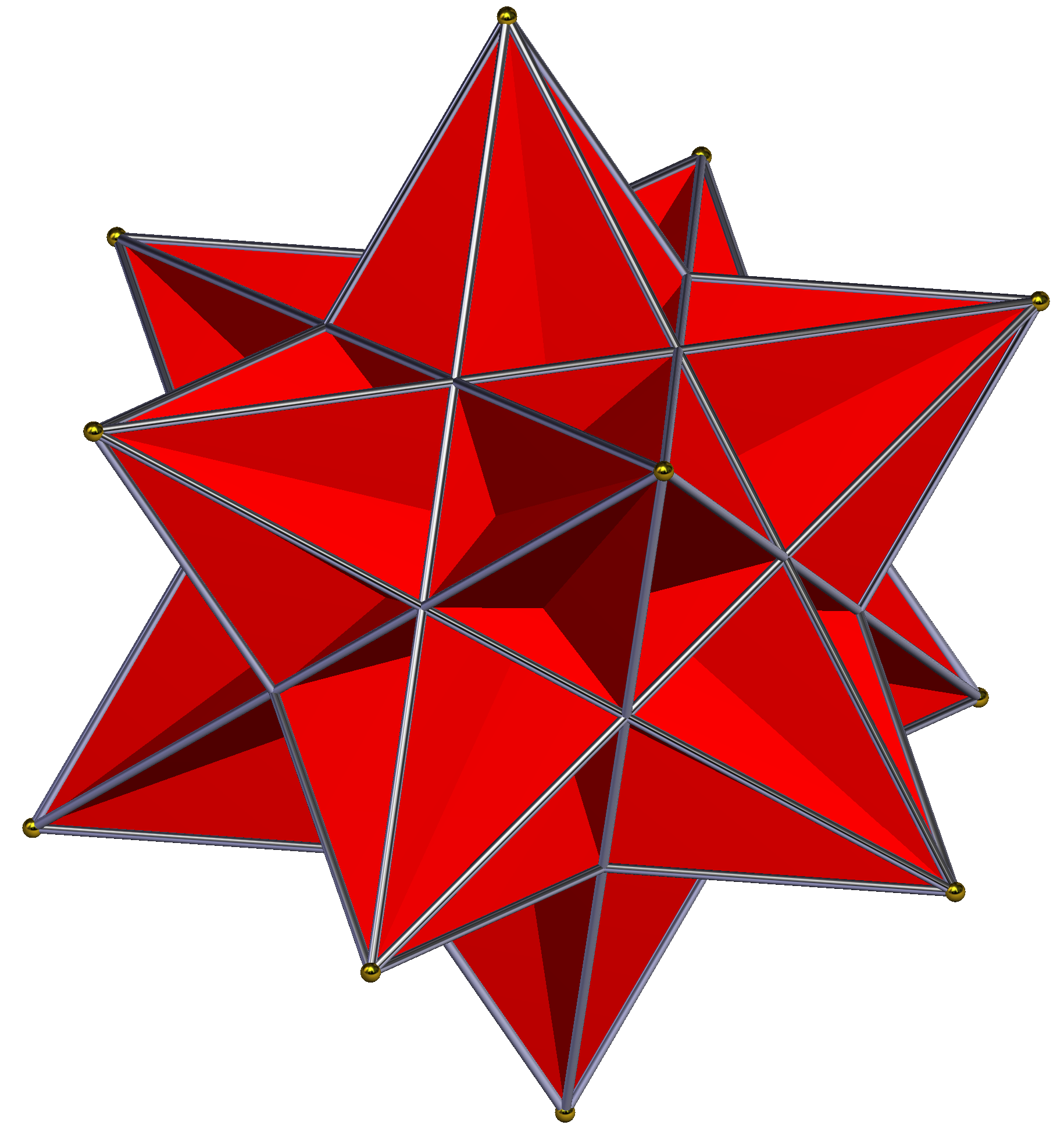Great Complex Icosidodecahedron on:
[Wikipedia]
[Google]
[Amazon]
In geometry, the great complex icosidodecahedron is a degenerate
 ,
,  ,
,  , - align=center
, Small stellated dodecahedron
, Great icosahedron
, Compound
, - align=center
, Small stellated dodecahedron
, Great icosahedron
, Compound
uniform star polyhedron
In geometry, a uniform star polyhedron is a self-intersecting uniform polyhedron. They are also sometimes called nonconvex polyhedra to imply self-intersecting. Each polyhedron can contain either star polygon faces, star polygon vertex figures, ...
. It has 12 vertices, and 60 (doubled) edges, and 32 faces, 12 pentagrams and 20 triangles. All edges are doubled (making it degenerate), sharing 4 faces, but are considered as two overlapping edges as topological polyhedron.
It can be constructed from a number of different vertex figures.
As a compound
The great complex icosidodecahedron can be considered a compound of the small stellated dodecahedron, , and great icosahedron, , sharing the same vertices and edges, while the second is hidden, being completely contained inside the first. {, , {, class=wikitable width=300 , + Compound polyhedron , ,
,  ,
,  , - align=center
, Small stellated dodecahedron
, Great icosahedron
, Compound
, - align=center
, Small stellated dodecahedron
, Great icosahedron
, Compound
See also
* Small complex icosidodecahedron * Small complex rhombicosidodecahedron * Complex rhombidodecadodecahedron * Great complex rhombicosidodecahedronReferences
* (Table 6, degenerate cases) * * {{KlitzingPolytopes, polyhedra-neu.htm, 3D uniform polyhedra, o5/3x3o5*a and o3/2x5/2o5*a - gacid Polyhedra Polyhedral compounds